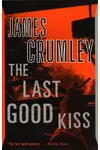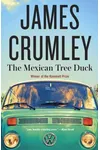Dive into the gritty, booze-soaked world of C.W. Sughrue, where Montana’s rugged landscapes meet hard-boiled crime fiction with a rebellious streak. James Crumley’s iconic series follows C.W. Sughrue, a former military spy turned private investigator, as he tackles cases that spiral into chaos, blending noir’s dark heart with a post-Vietnam edge. Ready for a wild ride through America’s underbelly?
Sughrue’s adventures are more than just detective stories—they’re raw, poetic explorations of loyalty, loss, and the blurred lines between right and wrong. With a penchant for whiskey, women, and trouble, Sughrue is the antihero you can’t help but root for, even when he’s shooting first and asking questions later.
How C.W. Sughrue Began
James Crumley, a Texas-born Army veteran with a knack for vivid prose, created C.W. Sughrue in the late 1970s, drawing inspiration from his love for Raymond Chandler and the counterculture vibe of Hunter S. Thompson. After his Vietnam War novel, One to Count Cadence, Crumley turned to crime fiction, urged by poet Richard Hugo to embrace the genre’s potential for lyrical storytelling. The result? A Montana-based PI who debuted in 1978’s The Last Good Kiss, a novel now hailed as a cornerstone of modern crime writing.
Crumley’s time in Missoula, Montana, shaped Sughrue’s world. Local bars, like Charlie B’s, became his muse, with real-life regulars morphing into the series’ colorful cast. Crumley’s hard-living lifestyle—think whiskey and late nights—infused Sughrue with an authentic, rough-around-the-edges charm.
The Heart of C.W. Sughrue
The C.W. Sughrue series spans four novels, each a masterclass in hard-boiled storytelling. The Last Good Kiss (1978) kicks things off, with Sughrue hired to track a drunken writer, only to stumble into a decade-old mystery involving a missing girl. Its opening line—about an alcoholic bulldog named Fireball Roberts—is legendary for its vivid grit.
The Mexican Tree Duck (1993) sees Sughrue chasing kidnapped fish (yes, really) before unraveling a larger conspiracy involving a politician’s wife and stolen artifacts. Bordersnakes (1996) teams Sughrue with fellow PI Milo Milodragovitch for a vengeance-fueled road trip across America and Mexico, dripping with sex, drugs, and violence. Finally, The Right Madness (2005) finds Sughrue investigating stolen psychiatric files, only to face a rising body count tied to a cold case.
The series’ themes—moral ambiguity, the cost of violence, and the search for redemption—set it apart. Crumley’s Montana is a character in itself, its dive bars and open roads framing tales of broken souls. His prose, laced with dark humor and poetic melancholy, elevates the genre, earning praise from authors like Michael Connelly and Dennis Lehane.
Why C.W. Sughrue Resonates
C.W. Sughrue’s influence on crime fiction is undeniable. The Last Good Kiss is often called the most influential crime novel of the past 50 years, redefining the private eye for a post-Vietnam era. Crumley’s blend of Chandler’s wit, Thompson’s chaos, and a distinctly Western swagger inspired a generation of writers, from George Pelecanos to Craig McDonald. Fans adore Sughrue’s flawed humanity—he’s tough yet tender, cynical yet hopeful.
Despite never hitting mainstream bestseller lists, the series has a cult following, cherished for its raw authenticity and refusal to play by genre rules. Its legacy lies in its fearless exploration of America’s darker corners, making it a must-read for noir enthusiasts.
- About C.W. Sughrue
- Publication Years: 1978–2005
- Number of Books: 4
- Awards: The Mexican Tree Duck won the 1994 Dashiell Hammett Award; The Right Madness was a 2005 Los Angeles Times Book Prize finalist.
- Setting: Primarily Meriwether, Montana
Grab The Last Good Kiss and step into C.W. Sughrue’s hard-boiled world—where every case is a shot of whiskey and a punch to the gut!



